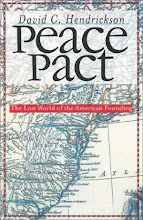It seems apparent that the arrival of "Peak Credit" will have profound implications for those imbalances and for the world economic disorder to come.
China stands to suffer as much, perhaps more, from this unraveling as the United States. Pity the creditor, who built up an enormous export industry directed to the American market, funded its ravenous appetites, and has now made the unpleasant discovery that his debtors are deadbeats.
We shall see what this means for Chinese exports, but the following older chart, incorporating data as of August 2006, shows how closely the growth of exports tracked the H-Share index of Chinese shares traded in Hong Kong.

Here's a snapshot of another H-Share index as of October 17, 2008. It suggests that exports will follow share prices down.

The logical choice for China is a big domestic spending program, reworking its factories and investments to improving the standard of living of ordinary Chinese. A novel concept: make things for themselves rather than for us. They have gotten with the program in this regard.
This is not, in the first instance, “decoupling”—China will suffer greatly from the bust. But it does portend a new monetary system. As a “reserve currency” in the sense in which we have known it for a very long time, under the two Bretton Woods regimes, the dollar is kaput.
Though some believe that China's appetite for US Treasury debt will not wane, there is a strong countervailing argument. Notes Ronald Solberg: "The concept of Bretton Woods II -- wherein foreign investors were the lender of last resort extending vendor financing for their exports sold to the US (consumer) -- was predicated on the stability of sustained household consumption. With the US household suffering from declining home prices, falling real wages, job loss and collapsing confidence, the American consumer will take years to recover their former spendthrift ways. With this missing critical link in the global relationship, it is suspect whether foreign governments will be willing to significantly increase their holdings of US dollar debt, if there is not the quid pro quo of increased export receipts from further US consumer spending."
Russ Winter also sees the same dynamic: "The half trillion dollar domestic spending initiative from China has neutron bomb potential," he wrote on November 10, 2008. "As Asia (and others) have the savings pools and currency reserves, this also means they have the capital to carry out their plans. I believe they are going to be 'calling home' monies previously lent to the US to do so, and will be MIA when future funding is asked for. Thus this could serve as THE Pearl Harbor moment for the US, and make the big bailouts and monster borrowing plans highly problematic without much higher interest rates."
For background on "Bretton Woods II," see the 2004 paper by Roubini and Setser and the update by Setser here.
Recall also that Japan had a 15% rate of domestic saving in the early 1990s after their bust; the government's subsequent massive borrowing could be financed by Japanese households, whose purchases of government debt kept bond prices low. That is not the case with US households today.
11/29/08


